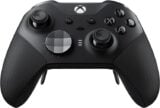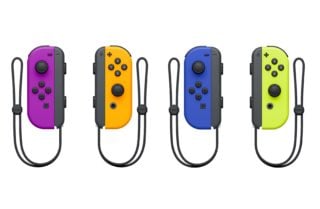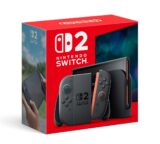Microsoft issues fresh call to take Xbox drift lawsuit out of court
Company insists plaintiffs accepted arbitration by signing into Xbox Live and using controllers

EDITOR’S NOTE:
An earlier version of this story incorrectly stated that the judge had granted Microsoft’s request for arbitration. No ruling has been made and both plaintiffs and the defendant in this case await the judge’s decision on the motion. We apologise for this error.
Microsoft has issued fresh statements calling for a class-action lawsuit over ‘drifting’ Xbox controllers to be taken out of the courtroom, by compelling arbitration.
The lawsuit, filed in April last year, alleges that drifting issues – which see controller movements incorrectly registered due to wear – have been experienced by a large volume of Xbox owners across various controller models.
The suit alleges that the drifting issues are caused by a design flaw in Xbox controllers, which it claims Microsoft is aware of and failed to disclose to customers.
However, Microsoft has again called on Western District of Washington Judge Ricardo S. Martinez to compel arbitration, which would see the disputes resolved outside of the courtroom by an impartial adjudicator.
Microsoft previously claimed that the plaintiffs behind the lawsuit had agreed to its Services Agreement, which state that all disputes should be resolved this way. The corporation said the plaintiffs agreed to the MSA when they first signed into Xbox Live or when they purchased their controllers and used them, rather than immediately returning them.
In a new motion, Microsoft’s counsel point to a similar class-action over drifting Nintendo Switch Joy-Con controllers, in which Nintendo was granted a motion to compel arbitration.

“The avid Xbox gamers who bring this lawsuit repeatedly agreed with Microsoft to submit their disputes to a consumer-friendly, individual arbitration process,” Microsoft’s counsel wrote in court documents seen by VGC.
“The Court therefore should compel Plaintiffs to arbitration, where they can litigate their arguments as to scope, unconscionability, and disaffirmance.”
Xbox Series X/S at retail
Last month the plaintiffs behind the lawsuit filed a response to Microsoft’s request to take the matter out of the courtroom, claiming the request should be dismissed because the corporation’s Services Agreement makes no mention of controllers, and that mention of the agreement on Xbox controller packaging did not give “adequate notice”.
In the latest motion, Microsoft dismissed their claims: “In the MSA, Plaintiffs broadly agreed to arbitrate any ‘dispute,’ including ’any claim or controversy between you and us concerning the Services,’ except IP claims,” it wrote.
“Because ‘the Services’ include Xbox Live, the online service for Xbox play, any dispute ‘concerning’ Xbox gameplay is arbitrable
“Here, Plaintiffs have Xbox Live Gamertags, and their claims center on the allegation that supposed controller defects prevent ‘accurate gameplay’. An arbitrator could easily conclude this dispute concerns gameplay.”
It continued: “Finally, it makes no difference that the full terms of the arbitration agreement appeared only online, with a thorough summary in the controller product guide… Here, the product guides in the controller boxes summarized arbitration terms, and the URL both on the boxes and in the guides led directly to the warranties page, not a generic homepage.”
The original class-action claims that the Xbox drifting issue is caused by a controller defect related to the potentiometer within the joystick component—the mechanism that translates the physical movement of the thumbstick into movement within software.

It alleges that this component contains a known design flaw related to a grease-like lubricant, which causes resistive material scraped off a curved track to cause unwanted movement without input from the user.
The lawsuit alleges that Microsoft is fully aware of the drifting defect after numerous online complaints received from its customers, and yet “failed to disclose the defect and routinely refuses to repair the controllers without charge when the defect manifests.”
It claims that the plaintiffs’ experiences are not isolated and that “a large volume of consumers have been complaining about stick drift on Xbox One controllers since at least 2014.”
In October 2020 Microsoft confirmed it planned to extend the warranty of its Xbox Elite Series 2 controller, just a few weeks after the class-action lawsuit was amended to include the premium game controllers.
















